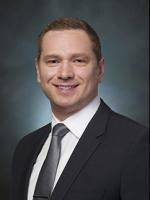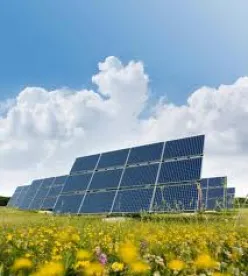On March 22, 2016, an energy task force reconvened by Nevada Governor Brian Sandoval held its first meeting. The primary mission of the New Energy Industry Task Force (“Task Force”) is to advise the Governor’s Office of Energy (“GOE”) on ways to promote the development of renewable energy and distributed energy resources in Nevada. Specifically, the Governor charged the Task Force with making recommendations regarding Nevada’s compliance with the EPA’s Clean Power Plan, the future of net metering in Nevada, and Nevada’s energy grid. The Task Force plans to provide recommendations on net metering and Nevada’s energy grid in time to allow the Governor to prepare bill draft requests in advance of the upcoming 2017 Session of the Nevada Legislature.
The Task Force is a creature of the 2009 Session of the Nevada Legislature. By statute, it consists of the Director of the GOE, who chairs the organization, and up to eleven members appointed by the Director. Members of the Task Force serve without compensation. Membership in the organization is prescribed by statute and must be representative of a variety of state and local interests. The table below matches the statutory membership mandates with the Director’s appointees.
|
NRS 701.500(2) Membership Requirements |
Task Force Appointees |
|
A representative of the large-scale solar energy industry |
Kathryn Arbeit, First Solar, Inc. |
|
A representative of the geothermal energy industry |
Josh Nordquist, Ormat Technologies Inc. |
|
A representative of the wind energy industry |
Beth O’Brien, Pattern Energy Group LP |
|
A representative of the distributed generation industry or manufacturers of equipment for renewable energy power plants |
Jeremy Susac, SunStreet Energy Group, LLC |
|
A representative of an electric utility |
Starla Lacy, NV Energy |
|
A representative of an organization in this State that advocates on behalf of environmental or public lands issues |
Kyle Davis, Davis Strategies |
|
A representative of a labor organization |
Danny Thompson, AFL-CIO |
|
A representative of contractors |
Tom Ewing, GSL Electric |
|
Three additional members who represent state and local government agencies or private industry in the field of renewable energy |
Matt Tuma, Governor’s Office of Economic Development |
The Task Force will be aided by three technical advisory committees: Clean Energy Sources, Grid Modernization, and Distributed Generation & Storage. The technical advisory committees are comprised of individuals from a wide array of specialized fields and interests, including the Nevada Division of Environmental Protection, the Public Utilities Commission of Nevada, the Bureau of Consumer Protection, Washoe County School District, the City of Las Vegas, Facebook, environmental groups, high-load customers, rural electric associations, and a rooftop solar advocacy group.
As many suspected, the future of rooftop solar in Nevada became the dominant issue during the first meeting. Supporters of rooftop solar once again attacked the Public Utilities Commission’s decision, which, in line with Senate Bill 374 of the 2015 Nevada legislative session, transitions partial requirement rooftop solar customers from a one-for-one consumption-generation netting structure to cost-based rates by January 1, 2028. Despite Jeremy Susac of SunStreet Energy Group being a member of the Task Force and the chair of the Distributed Generation & Storage advisory committee, which also includes Las Vegas-based distributed generation developer Bombard Renewable Energy and rooftop solar advocacy group Vote Solar, some rooftop solar companies were reported to complain that they had no representation on the Task Force.
The rooftop solar discussion took place against the backdrop of class-action lawsuits, legal challenges to the Public Utilities Commission’s final order, and referenda initiatives. One of the lawsuits filed by rooftop solar customers alleges intentional misrepresentation and fraud on the part of SolarCity while another raised allegations of deceptive trade practices on the part of NV Energy. One of the two referenda petitions seeks to undo the provisions of Senate Bill 374 and allow all rooftop solar customers, existing and future, to net the energy they produce against the energy they consume. The other referendum petition is an initiative to constitutionally deregulate Nevada’s energy market. If passed, all customers would be able to choose their electricity supplier, with transmission and distribution remaining a monopoly. The initiative also includes the right for customers of the utility to produce their own electricity and to sell it on the open market.




 />i
/>i

